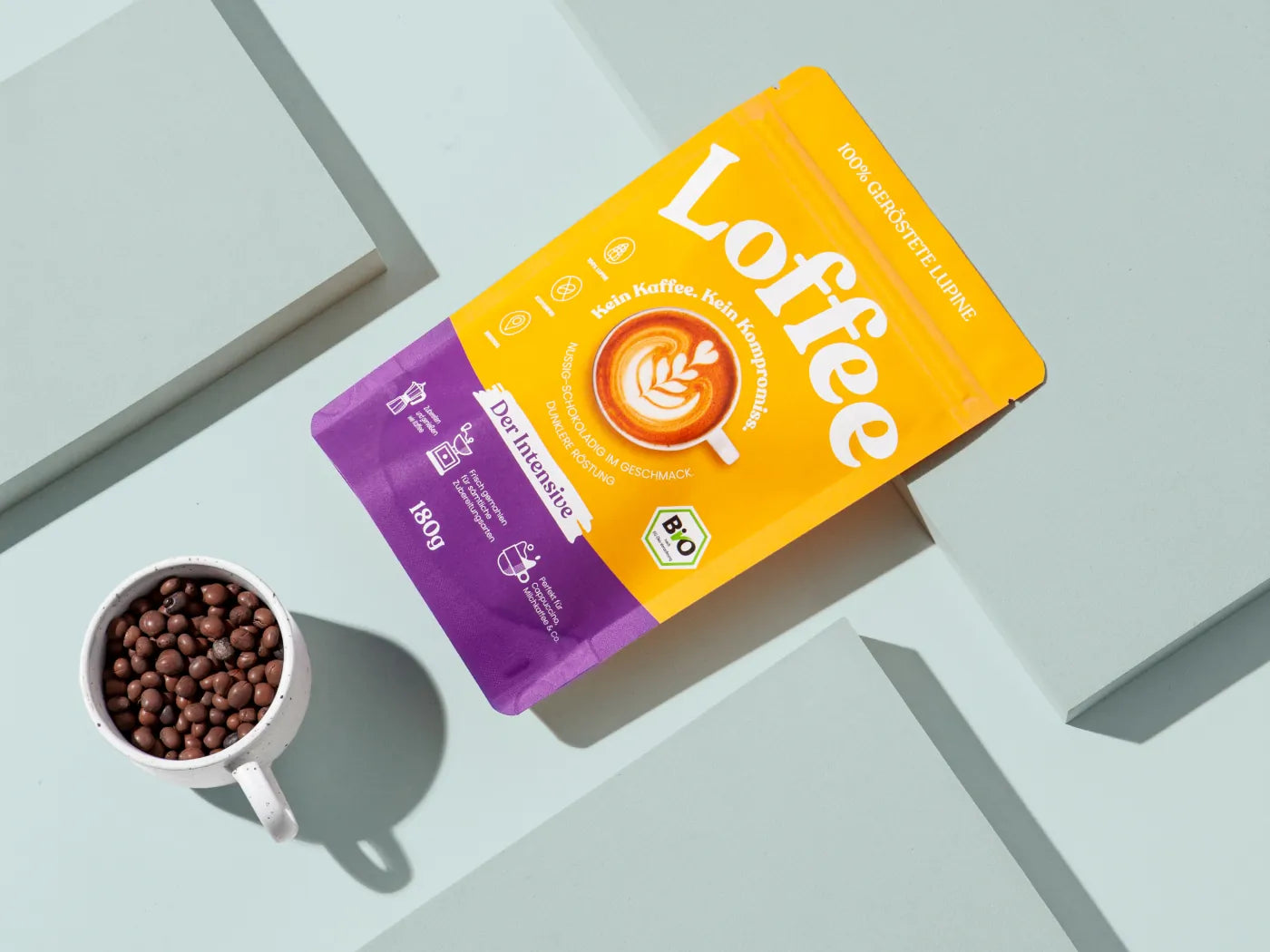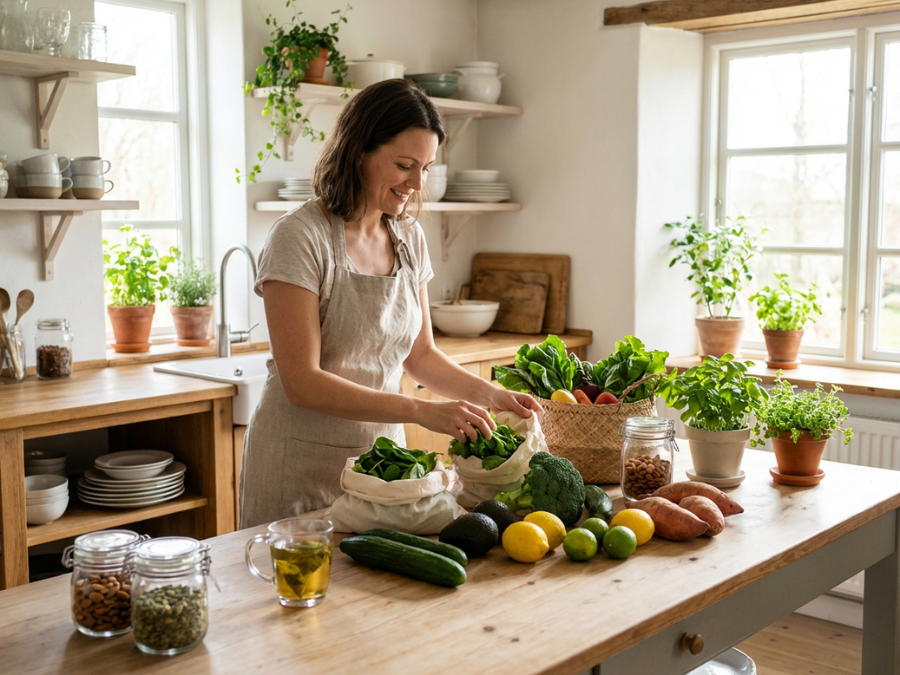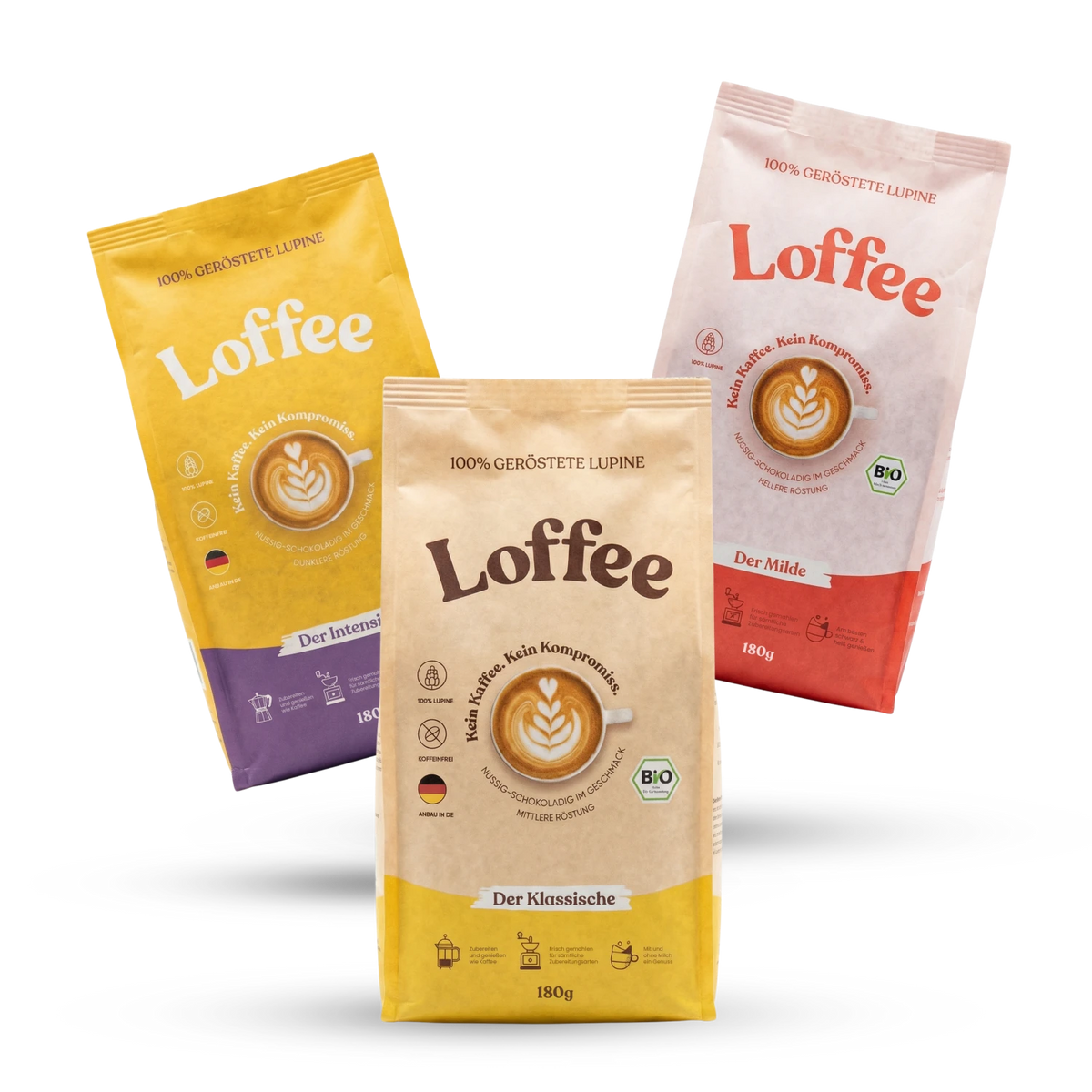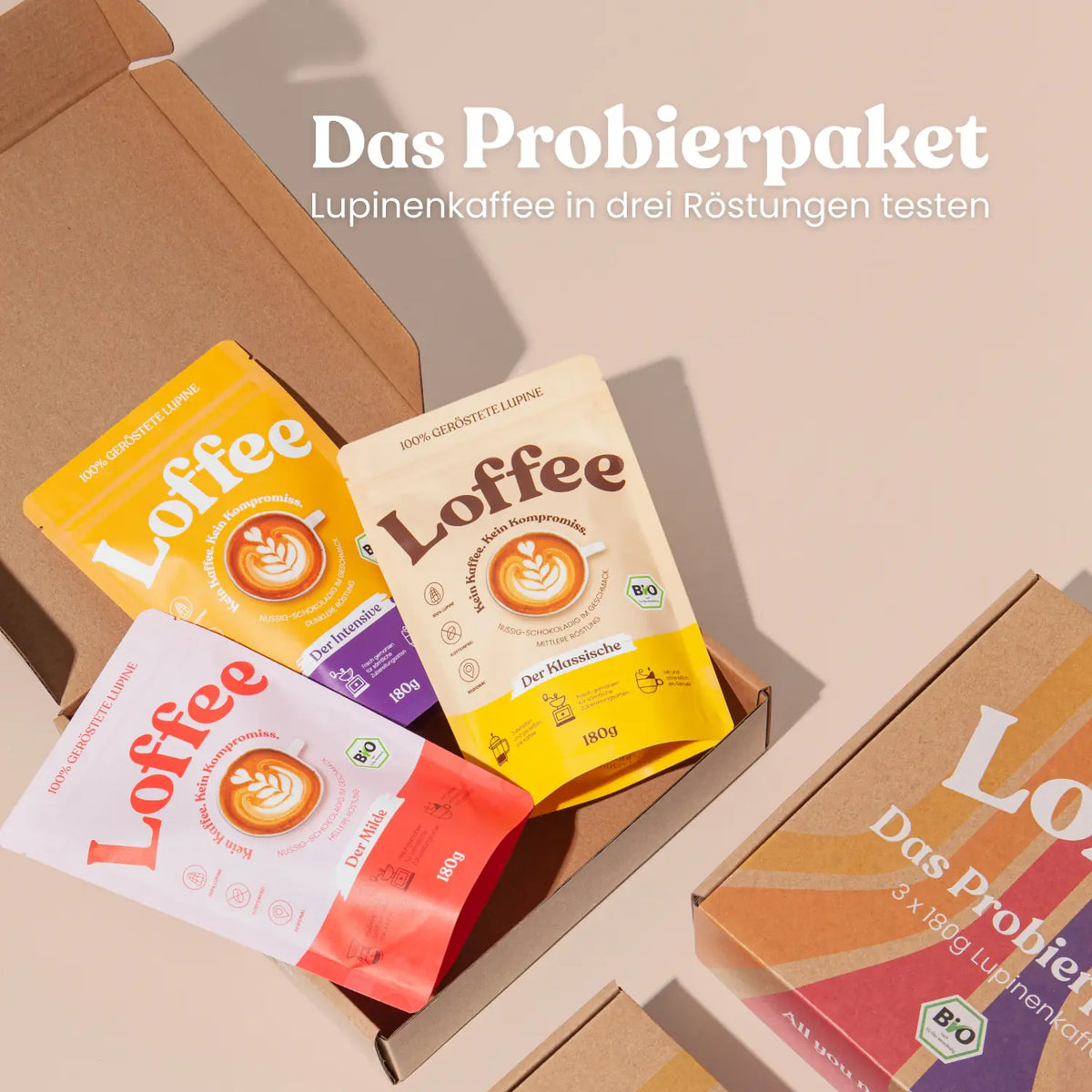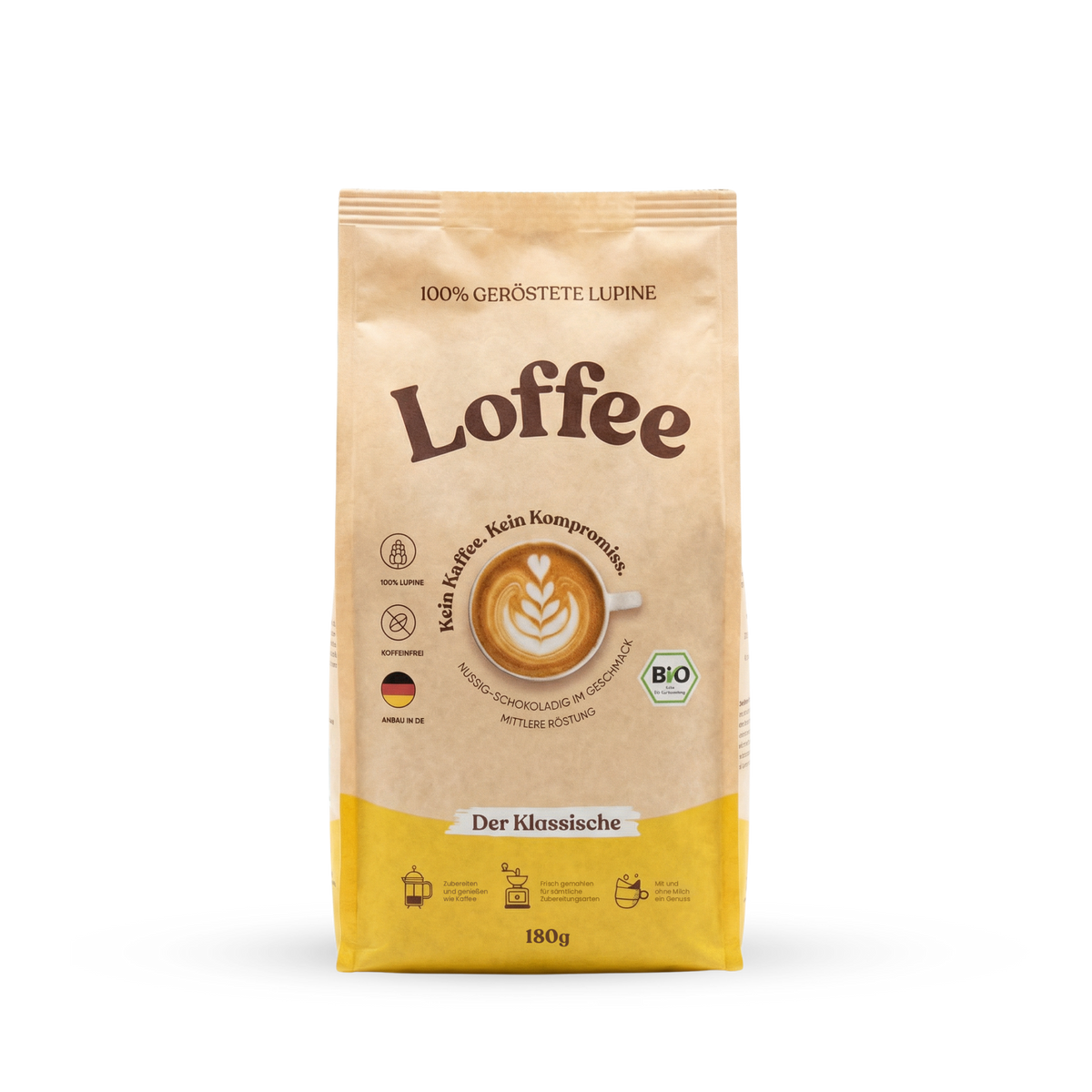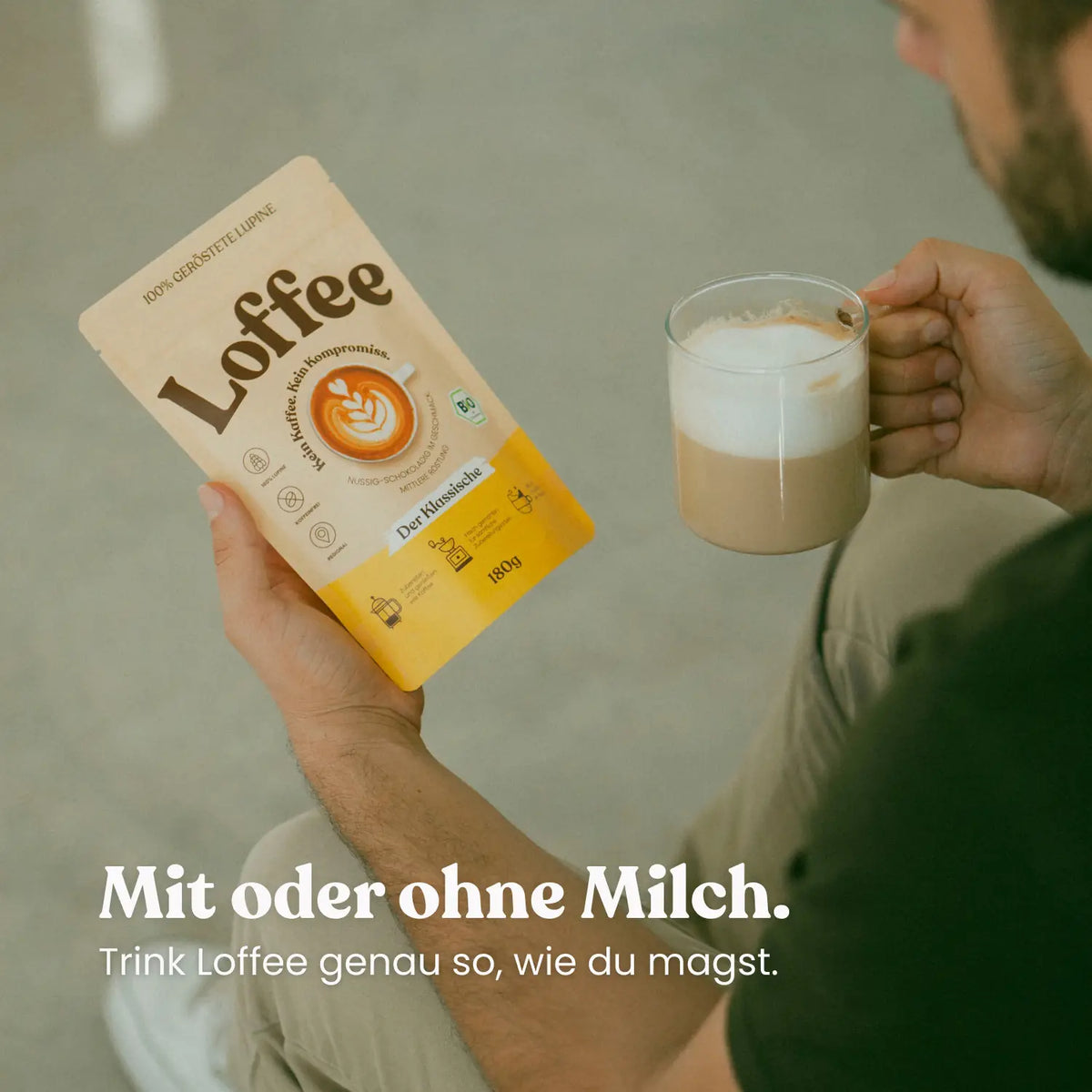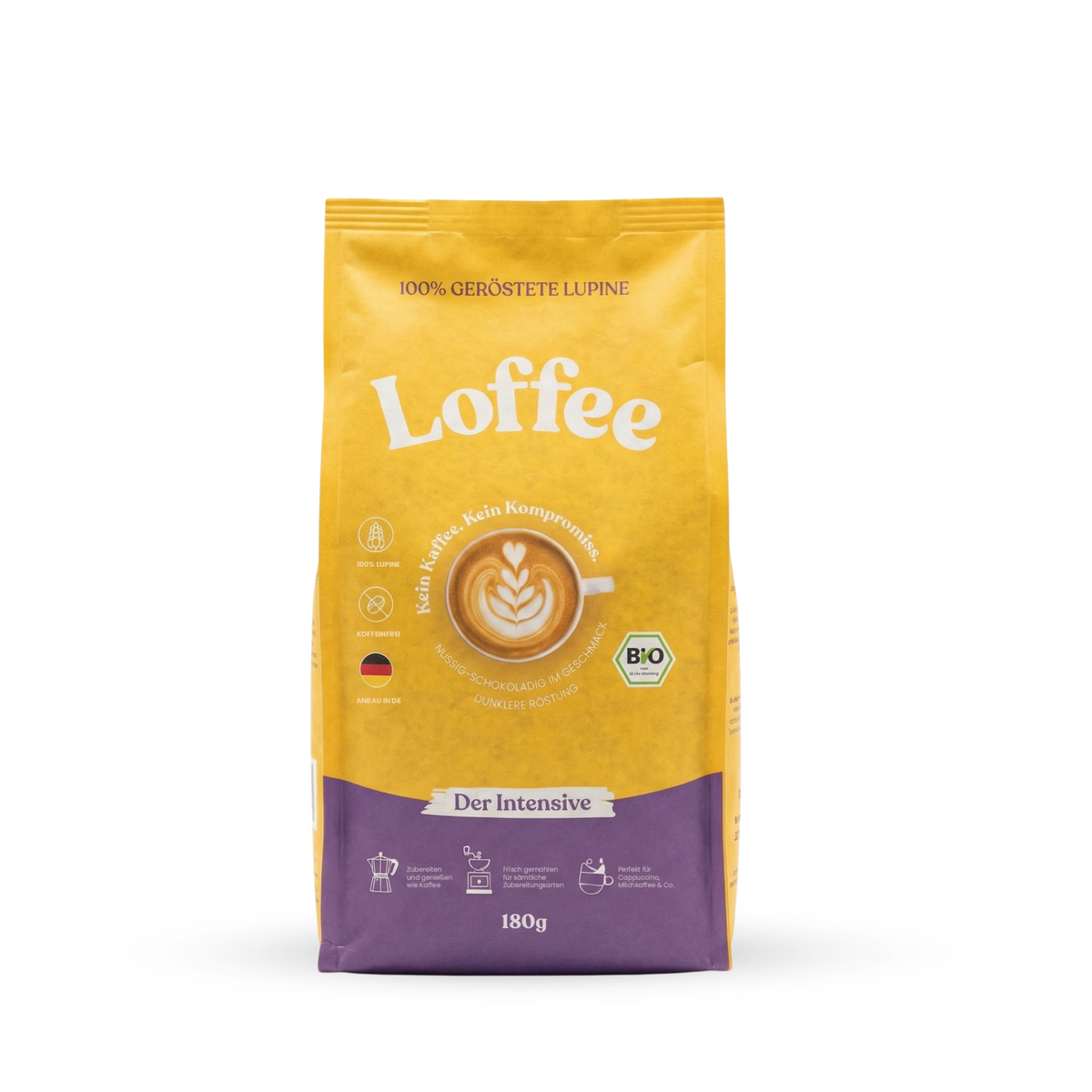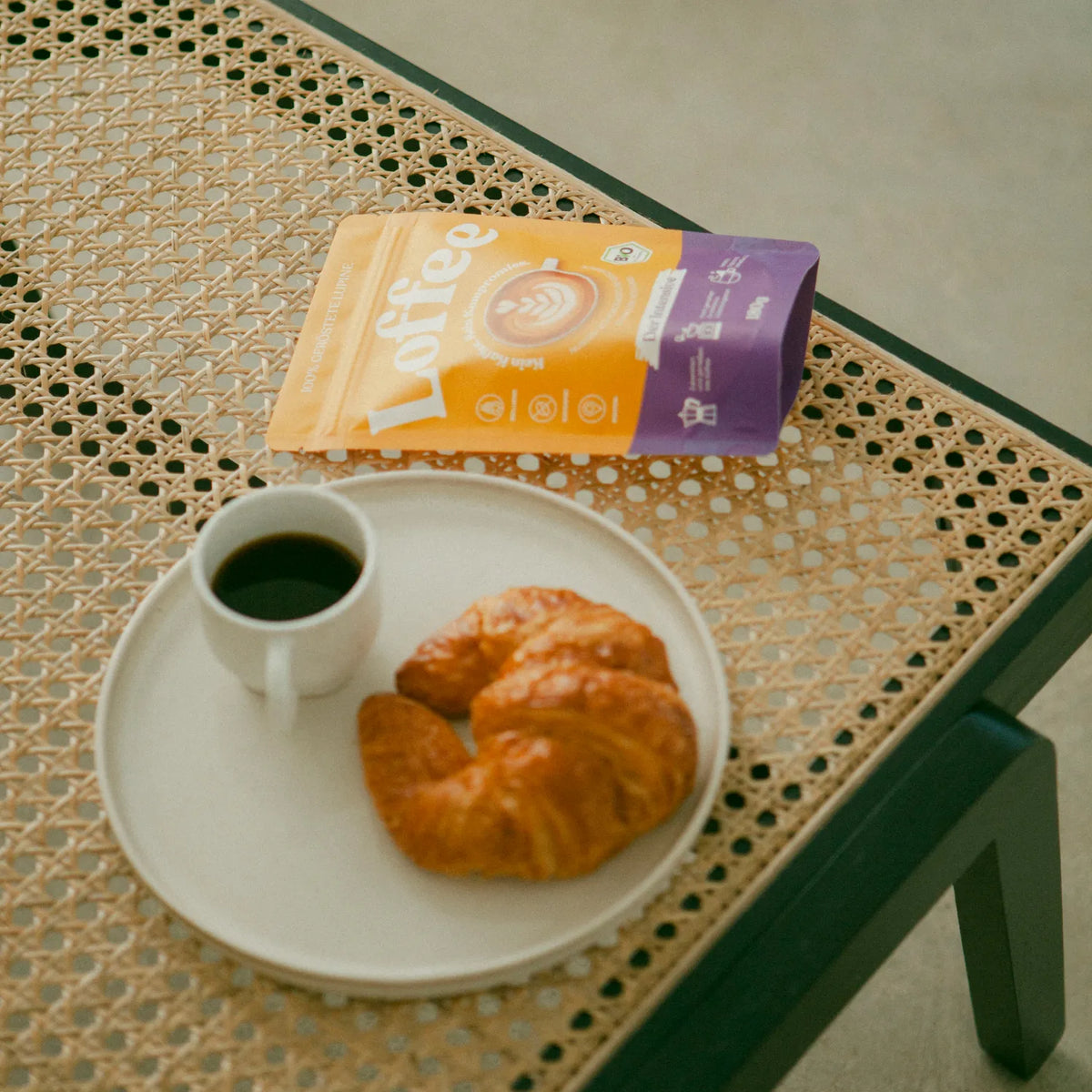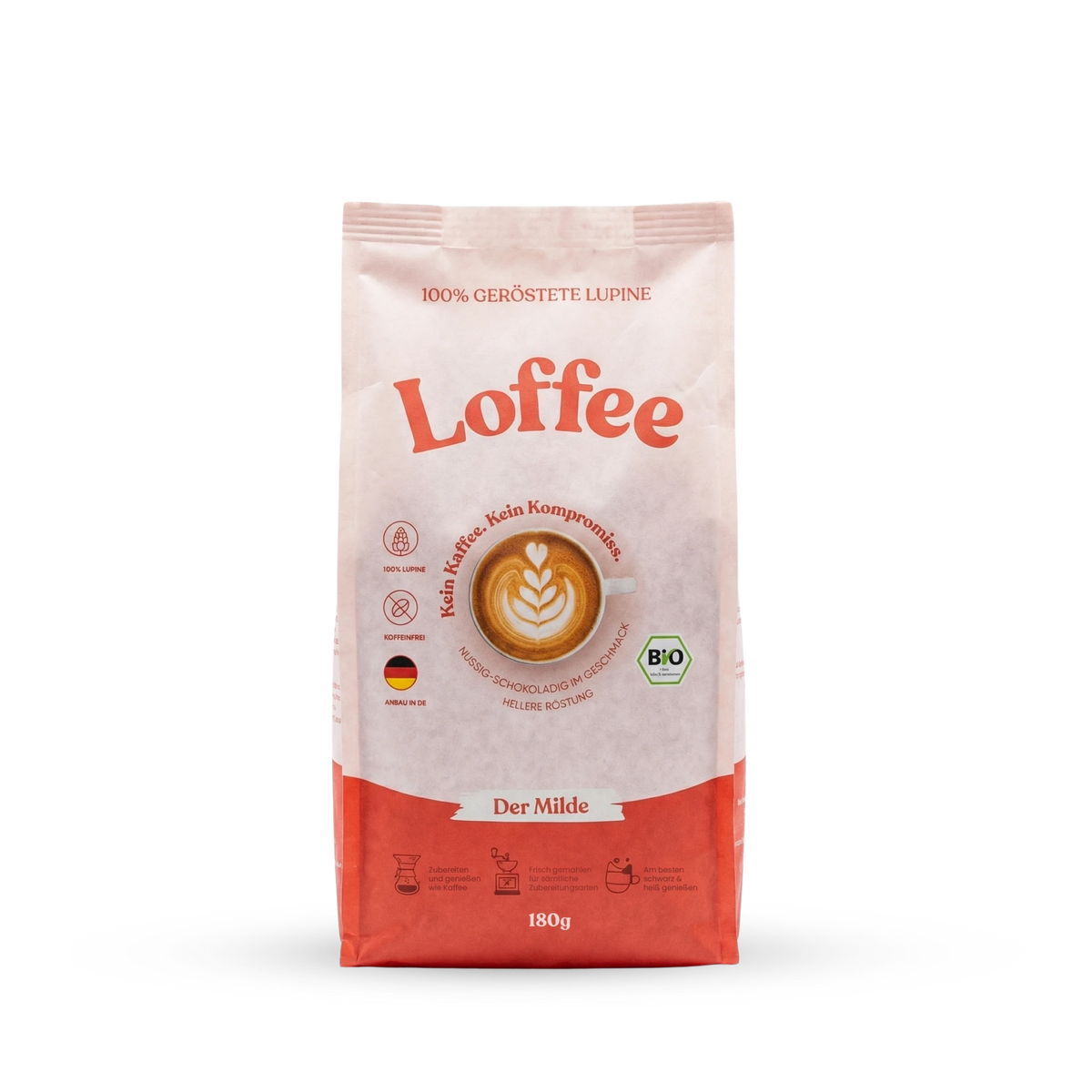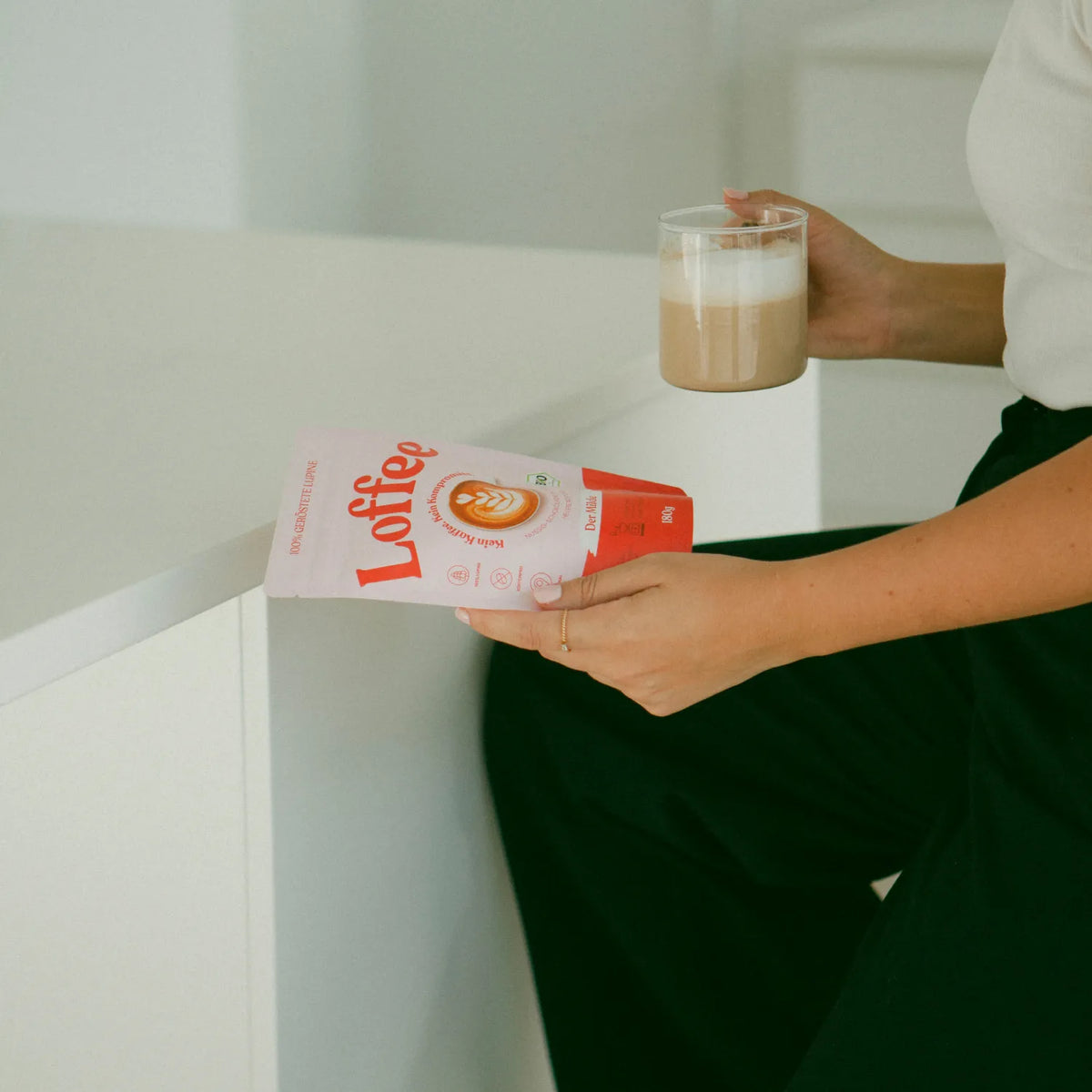"Organic" not only shines on our LoffeeThe green hexagon is appearing more and more frequently on the shelves of German markets - organic is popular. For 20 years now, the label has made it easier for consumers to immediately recognize organic food as such. But does it even make a difference if you choose organic products? Here you can find out why this certification is not only good for you, but also good for the environment.
The requirements for the organic label
So that a pack Loffee to bear the organic seal and be marketed as organic, both the lupin coffee itself and every link in the value chain must meet a number of requirements.
It all starts with the farmer in Germany. He plants and harvests the organic sweet lupins, which we later use to make your Loffee roast. His farm must have organic certification. The basis for this is the EC Organic Regulation. It lays down the minimum standards and the legal framework. This means that the responsible authorities must carry out inspections on the farm with regard to the seeds used, processing and storage. Only if the farm passes these annual inspections is it allowed to sell its goods as "organic".
As an organic farm, our farmer may of course only use organic lupin seed. This seed in turn has to meet high standards, it must Among other things, it must not have been genetically modified.
During cultivation, he completely avoids the use of synthetic nitrogen fertilizers and chemically processed mineral fertilizers and does not use any synthetic pesticides for pest control.
As the use of fertilizers is so strictly regulated, the natural preservation of soil health plays an important role for organic farmers. Due to their deep roots, lupin plants are used, for example, as a crop rotation for hardened soils and loosen them up. At the same time, the lupin is a master at extracting nitrogen from the soil, which means that it does not even require natural fertilizer and "neutralizes" over-fertilized soils.
As soon as the freshly harvested lupin seeds reach us, a little paperwork is required first, because: Another key element of the organic label is transparency and traceability. As part of the annual organic inspection, we have to be able to prove exactly where our lupins come from, how we have processed them and how many we have passed on to our customers as lupin coffee. This is a reliable way of ensuring that it only says organic where it really is organic.
Once the roasting process is complete, the time has come: organic lupins have become organic lupin coffee. Now our Loffee proudly bear its organic seal.
Why organic is good for us all
We have just seen: Organic lupins are free from pesticides or fertilizers. In addition, the organic regulation prohibits us as roasters from adding other ingredients. Every pack of lupin coffee is therefore a 100% pure and unadulterated natural product.
Not only does this mean that you don't have to worry about impurities in your Loffee but also protects the environment at the same time. Bees in particular enjoy natural, flowering and pesticide-free lupin fields. Earthworms also particularly like lupin fields because of the loose and low-nitrogen soil they produce.
As all the above-mentioned requirements are closely monitored annually by German authorities, these promises become reliable facts. This creates security and trust for everyone involved, especially for you as a consumer.



